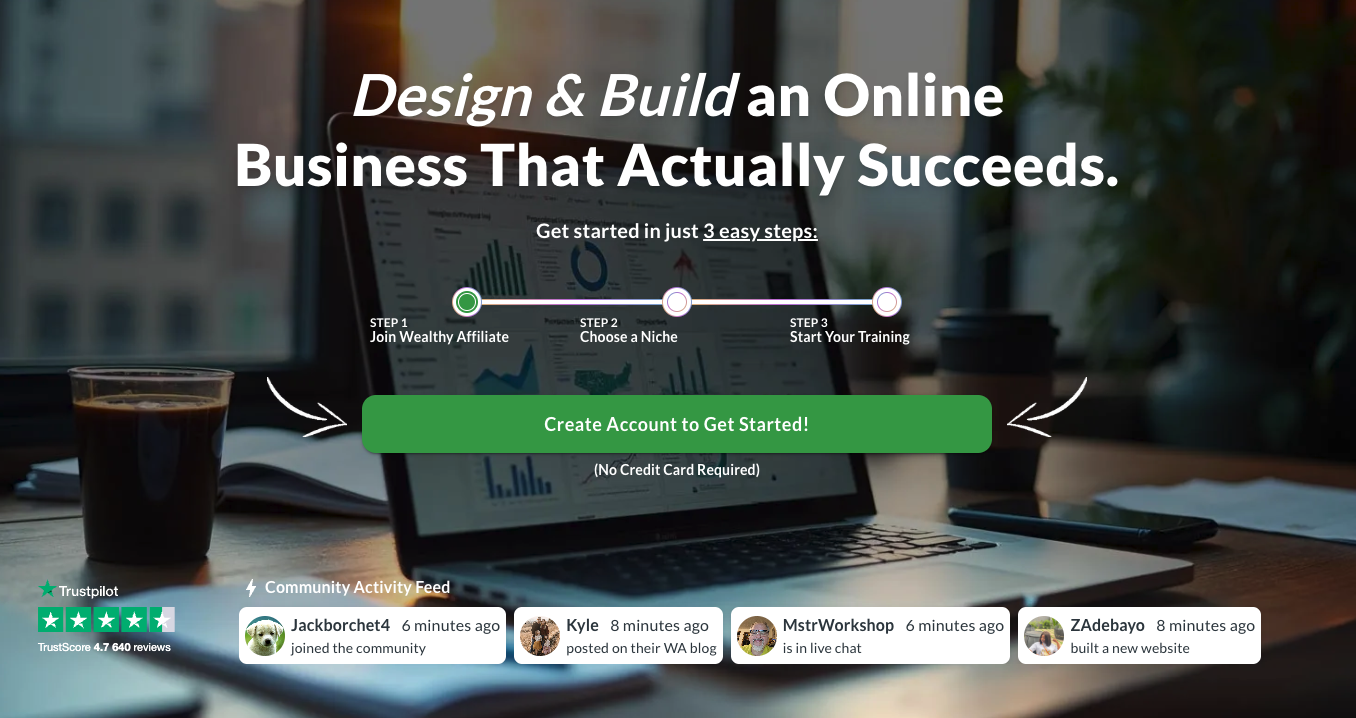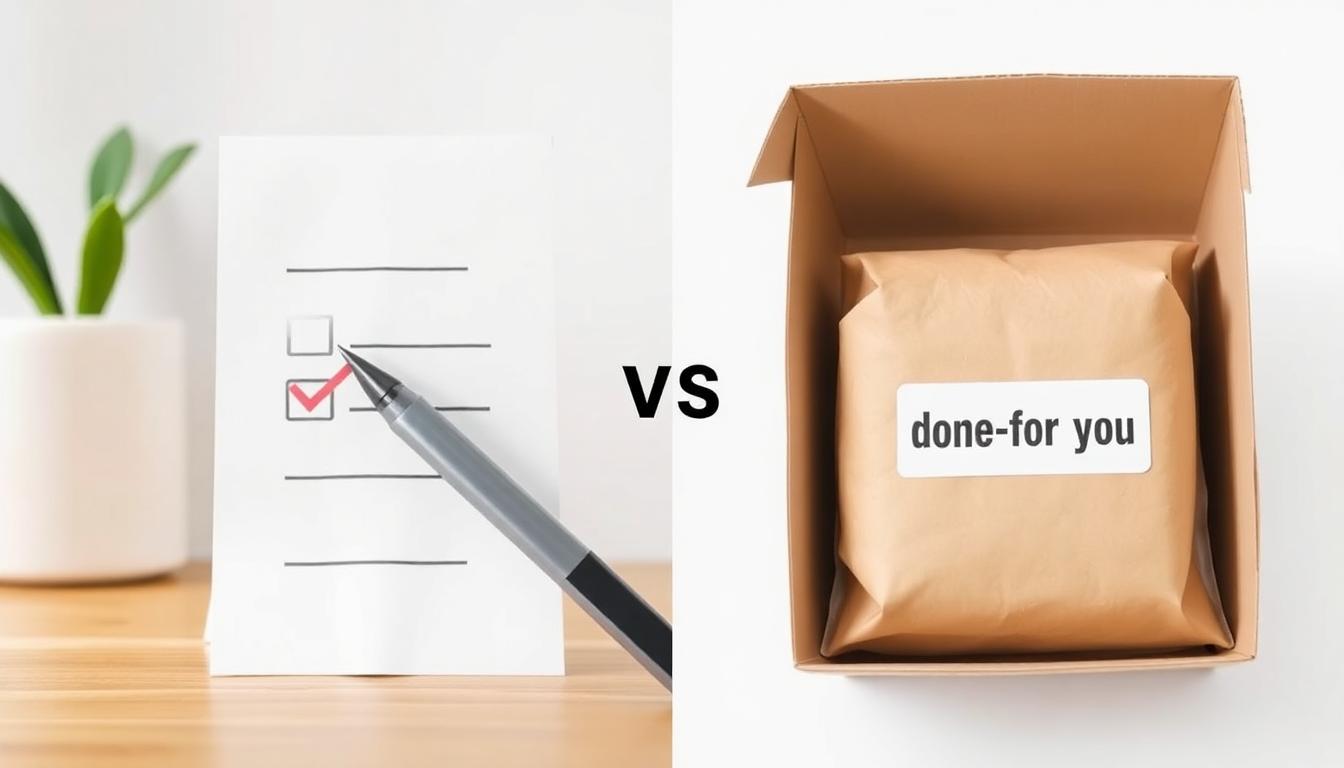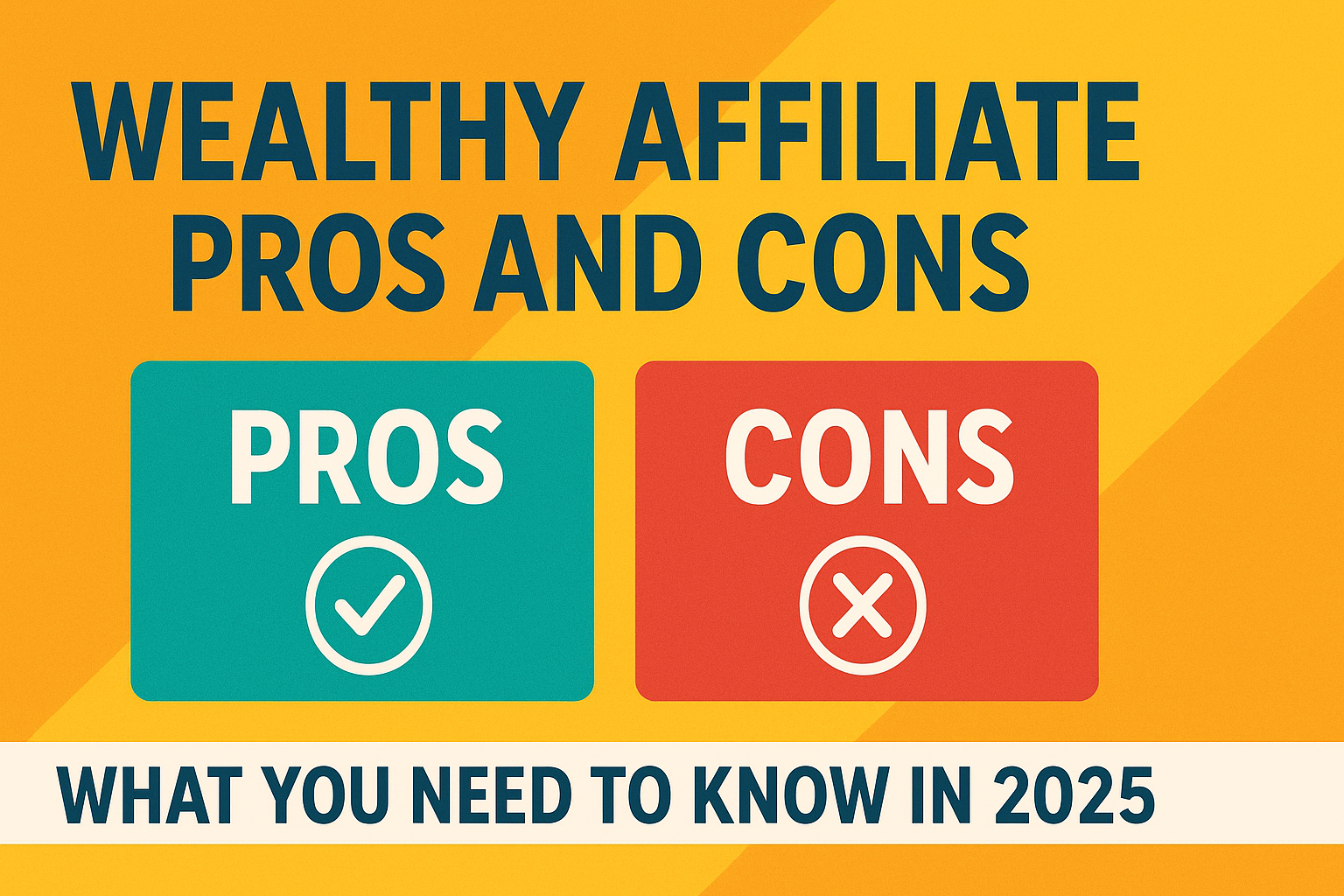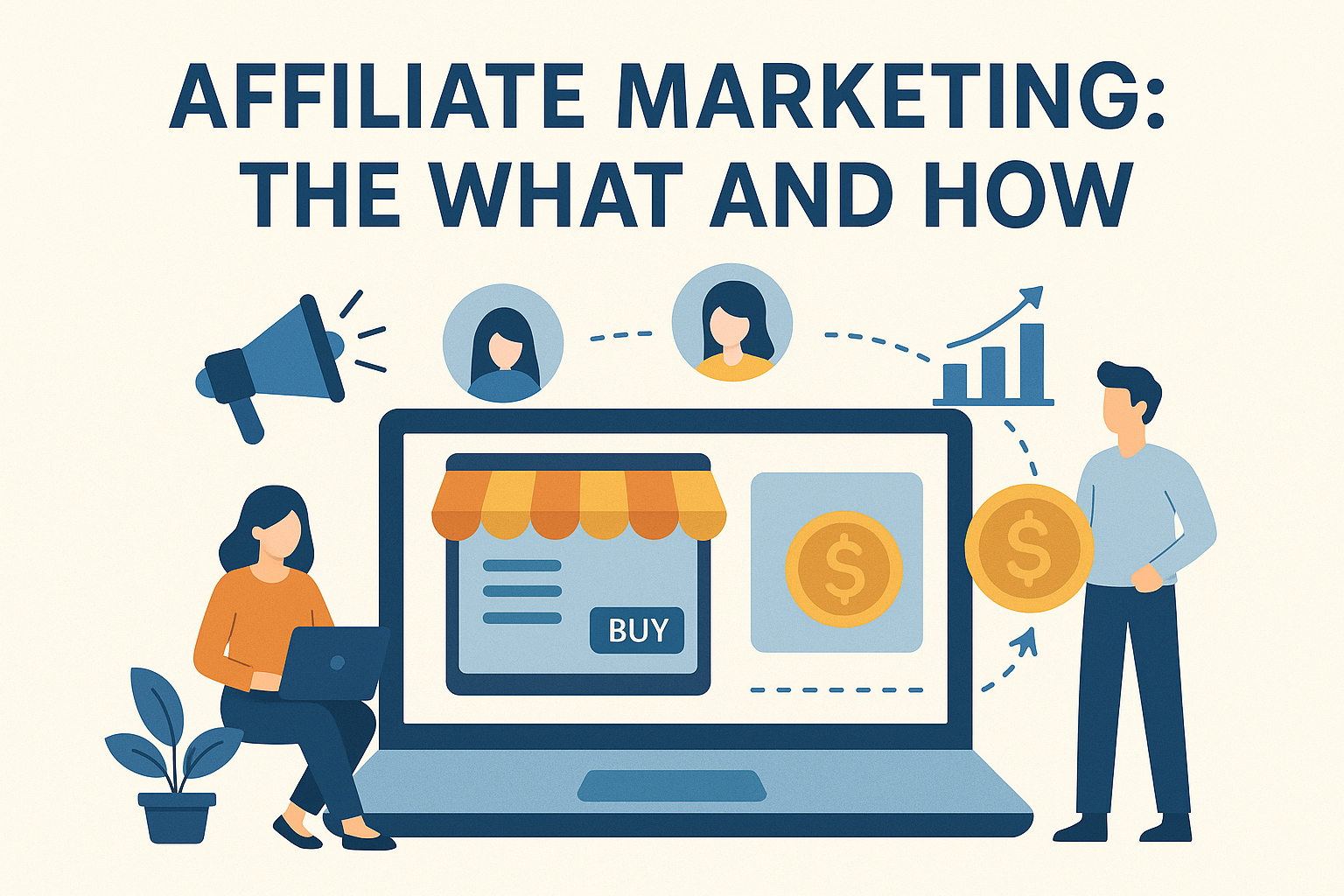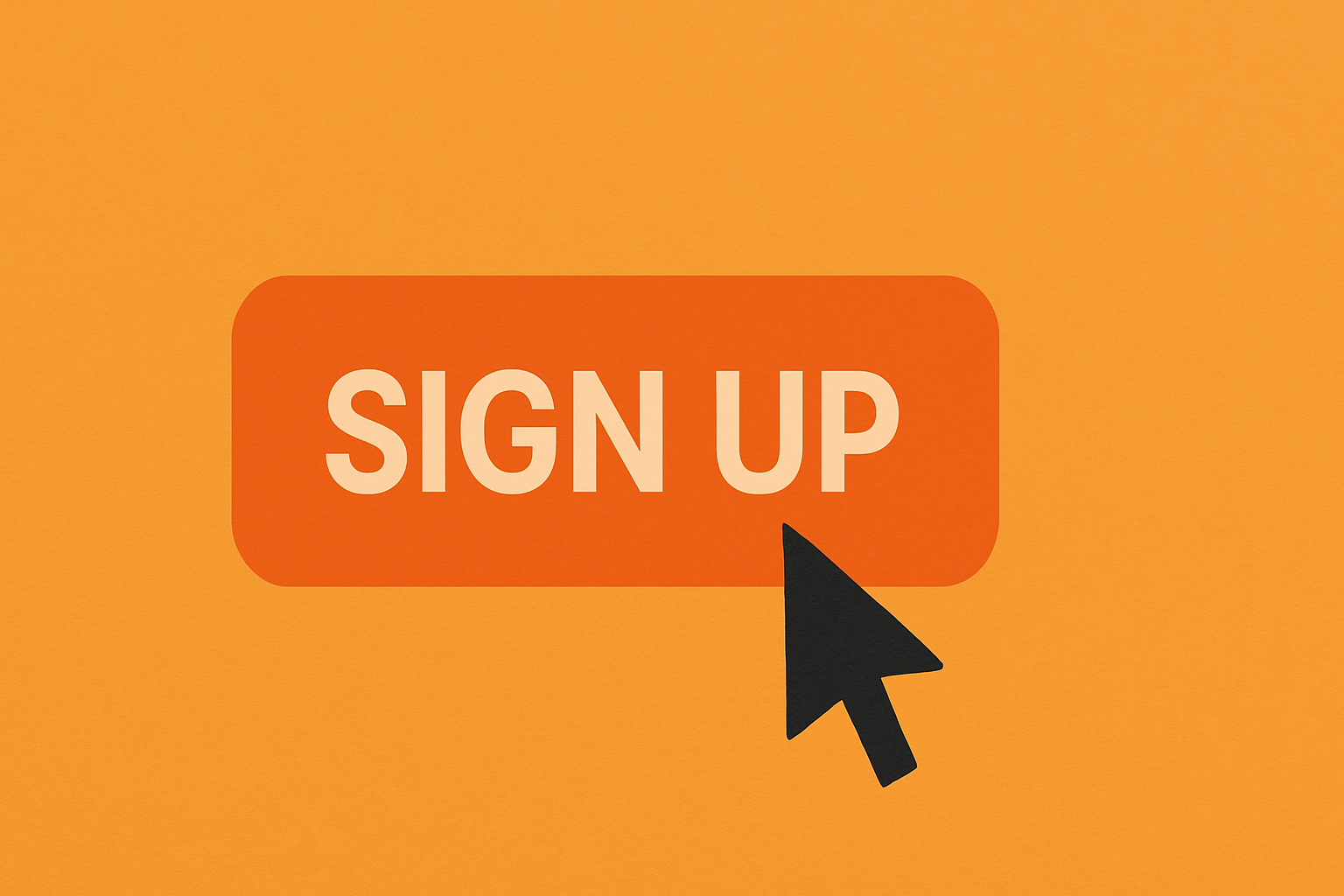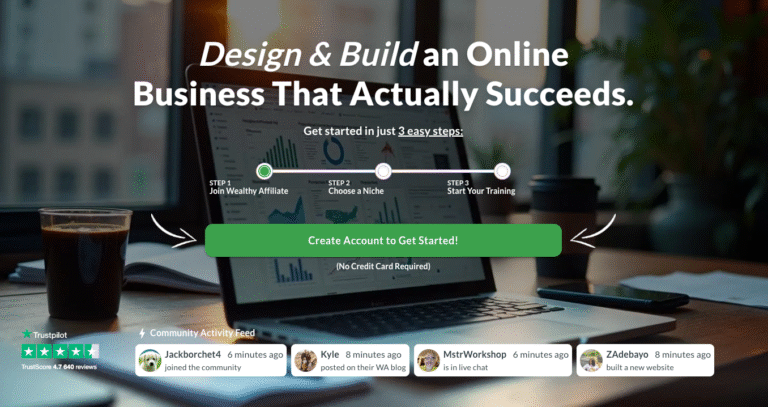Do I Need a Website to Participate in Affiliate Marketing?
Affiliate marketing offers a way to earn commissions by promoting products or services. Traditionally, it’s associated with having a website—but is it necessary? The simple answer is no. While a website is a great tool, many affiliate marketers succeed without one. Whether you’re just starting or exploring new methods, there are plenty of ways to navigate affiliate marketing without owning a site.
Let’s explore how you can engage in affiliate marketing without a website, the pros and cons of doing so, and when having a website might make sense for your strategy.
How Affiliate Marketing Works Without a Website
Affiliate marketing is built on a straightforward concept: you promote products or services, and when someone makes a purchase or takes a specific action through your unique affiliate link, you earn a commission. Traditionally, many marketers use websites to share content and host their links. But you don’t need to rely on a website to succeed.
Without a site, your focus shifts to leveraging other platforms, building connections, and using effective communication channels to promote affiliate offers. Here are some key methods to make this work.
Using Social Media Platforms

Photo by RDNE Stock project
Social media platforms like Instagram, TikTok, Facebook, and YouTube are excellent for promoting affiliate links. These platforms allow you to:
- Share engaging content such as videos, posts, or stories.
- Build a loyal audience by focusing on a specific niche.
- Add affiliate links to bios, captions, or video descriptions.
For example, a YouTube creator can review products, include affiliate links in the description, and earn commissions from clicks or sales. Similarly, an Instagram influencer can use swipe-up story links or direct followers to a shopping link in their bio.
Leveraging Email Marketing
Email marketing is a powerful way to connect with an audience. By creating a newsletter, you can:
- Share valuable insights related to your niche.
- Promote affiliate products directly to subscribers.
- Build trust over time, increasing the likelihood of conversions.
You’ll need an email marketing platform and a list of subscribers to get started. Offer a free resource, like a guide or checklist, in exchange for email addresses, and use your newsletters to highlight relevant affiliate products.
Participating in Online Communities
Online forums, Facebook groups, and niche-specific communities can also help promote affiliate links. These spaces allow you to:
- Engage in conversations with like-minded individuals.
- Share your expertise and position yourself as a trusted voice.
- Introduce relevant affiliate products organically.
The key here is to avoid being overly promotional. Focus on building genuine relationships and only recommend products when they add value to the conversation. For instance, in a fitness group, you could share a personal experience with a workout accessory and include your affiliate link.
Advantages and Challenges of Affiliate Marketing Without a Website
Working without a website has its perks, but it also has certain hurdles. Let’s break them down.
Pros of Not Having a Website
- Lower Costs: You don’t need to pay for domain registration, hosting, or web development.
- Quick Start: You can begin promoting affiliate links immediately on social media or other platforms.
- No Maintenance: Avoid the ongoing tasks of managing and updating a website.
- Flexibility: You can adapt to different platforms and strategies based on what works best for your audience.
Challenges to Consider
- Limited Control: You depend on third-party platforms, which can change algorithms or policies anytime.
- Branding Constraints: Without a central hub, it’s harder to establish a strong, cohesive brand identity.
- Trust Issues: People may be less likely to trust links shared through social media or email than links on a well-designed website.
- Affiliate Link Management: Tracking and organizing your links can become complicated without a dedicated space.
Building a More Comprehensive Approach with a Website
While it’s possible to succeed in affiliate marketing without a website, having one can amplify your efforts and provide long-term stability. A website gives you a central hub to showcase your expertise, manage content, and scale your affiliate marketing strategy.
Establishing Authority in Your Niche
A website allows you to create in-depth content, like blog posts, tutorials, or reviews, that establishes your authority. For example:
- A travel blogger can write destination guides and include affiliate links to hotels, flights, or travel gear.
- A tech reviewer can create detailed comparisons of gadgets and include purchase links.
Visitors who find value in your content are more likely to trust your recommendations.
Simplifying Affiliate Link Management
Websites make it easier to organize and manage affiliate links. You can use dedicated plugins or tools to:
- Track performance metrics, such as clicks and conversions.
- Ensure compliance with disclosure requirements.
- Create landing pages to improve user experience and conversion rates.
This level of control is hard to achieve when relying solely on social media or email.
Final Thoughts
While you can succeed in affiliate marketing without a website, having one can make your journey much smoother, especially as you scale. A website gives you more control, a stronger brand presence, and a central hub to streamline your efforts. It’s not a requirement, but it certainly eases the growing pains.
To build a professional website and learn the best strategies in affiliate marketing, Wealthy Affiliate offers excellent training and support. Whether you’re just starting or looking to refine your approach, they provide the tools and guidance you need to do it right.
Take the Next Step
Ready to elevate your affiliate marketing journey? Join Wealthy Affiliate for step-by-step training, powerful tools, and a supportive community. Start building your online empire today!
👉 Click here to get started with Wealthy Affiliate.
Top 10 FAQs About Wealthy Affiliate
2. Is Wealthy Affiliate Free?
Yes! Wealthy Affiliate offers a free Starter plan, which includes basic training, tools, and limited access to their features. You can upgrade to Premium for full access to advanced training and features.
3. Can I Build a Website With Wealthy Affiliate?
Absolutely. Wealthy Affiliate includes an intuitive website builder called SiteRubix, which allows anyone to create professional websites in minutes—no coding required!
4. Is Wealthy Affiliate Legit?
Yes, Wealthy Affiliate is a legitimate platform. It has been trusted by over 2 million members, helping them grow their affiliate businesses. This is no “get-rich-quick” scheme—you’ll need to put in the work to see results.
5. Can I Make Money With Wealthy Affiliate?
Yes, many users have built profitable affiliate marketing businesses leveraging Wealthy Affiliate’s tools and training. Your success depends on your effort and consistent application of the strategies provided.
6. Who is Wealthy Affiliate For?
It’s designed for:
- Beginners looking to learn affiliate marketing.
- Bloggers, content creators, and freelancers.
- Experienced marketers searching for advanced insights and tools.
7. What Makes Wealthy Affiliate Unique?
Wealthy Affiliate stands out with its:
- Extensive training libraries.
- All-inclusive toolkit (hosting, website building, keyword research).
- Active community of marketers ready to share advice.
- Free Starter plan to test before committing.
8. How Does the Community at Wealthy Affiliate Work?
The platform includes a supportive community of marketers worldwide. You can ask questions, join discussions, and access guidance from experienced members and live support teams.
9. Are There Any Hidden Costs With Wealthy Affiliate?
The platform is upfront about its pricing. The Starter plan is free, but upgrading to Premium opens up advanced features. There are no upsells within the program.
10. What Do I Need to Start With Wealthy Affiliate?
Just a computer and an internet connection. Wealthy Affiliate provides all the training and tools required, so you don’t need prior experience or additional software to get started.

Hello, I’m Michael, the founder of apexaffiliate.com. A few years ago, I was searching for a way to make money online and break free from the daily grind of the 9-5 lifestyle. Like many, I encountered countless “Done for you” and “Get Rich Quick” schemes, but eventually, I got lucky and discovered my path to success.
That turning point was Wealthy Affiliate, a platform I now consider home and the cornerstone of my online achievements. I want to share this journey with you and provide helpful insights into the basics of affiliate marketing, with the goal of making your path smoother than mine.
Join me, and let’s navigate this journey together—I’ll be here every step of the way to guide you.


